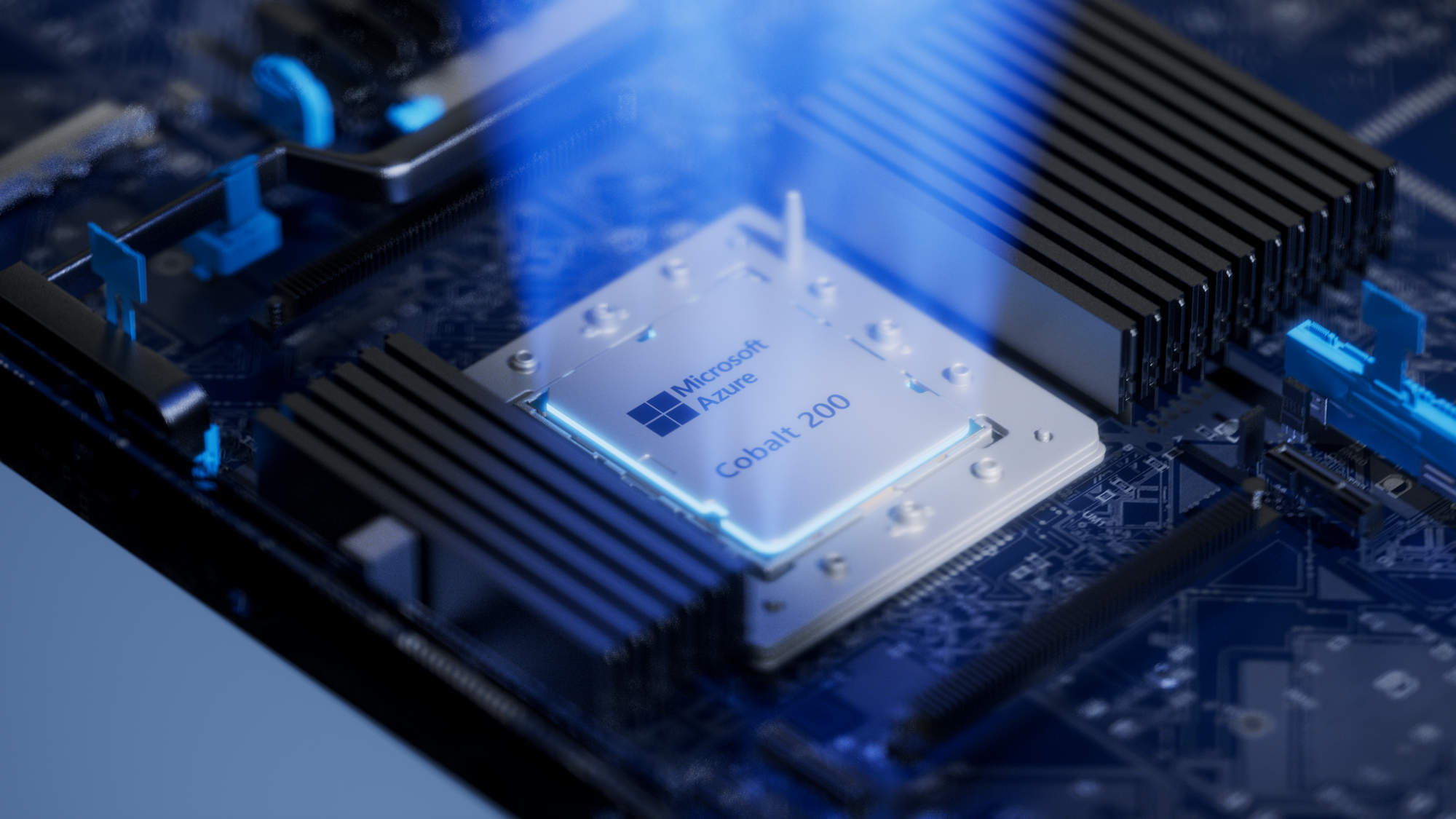Microsoft unveils its next-generation Arm-based CPU - Cobalt 200 looks to unlock even more Azure power
Microsoft Cobalt 200 uses Arm Confidential Compute Architecture for memory isolation

- Microsoft says Cobalt 200 delivers a 50% performance increase over Cobalt 100 systems
- Microsoft targets data analytics and web services using workload-specific design methods
- Per-core DVFS adjusts power use independently across all 132 cores
Microsoft has introduced Cobalt 200, a new Arm-based CPU designed for cloud services across Azure.
The company says the chip, which succeeds Cobalt 100 and retains compatibility with existing deployments, was designed using workload patterns observed across Azure environments, rather than industry-standard benchmarks, and it delivers up to 50% higher performance.
These workloads include data analytics, web applications, network-intensive services, and systems that rely heavily on storage access, targeting real-world usage.
Efficiency-focused architecture and power controls
Cobalt 200 incorporates per-core Dynamic Voltage and Frequency Scaling (DVFS), which enables each of the 132 cores to operate at different performance levels, thereby reducing unnecessary energy consumption.
The chip is manufactured on a 3nm process and is positioned as part of a broader strategy to manage power costs across data centres.
Compression, encryption, and decompression tasks are handled by dedicated accelerators, freeing CPU cycles and reducing compute costs for services such as Azure SQL.
Microsoft states these accelerators emerged from internal analysis showing that more than 30% of workloads rely on these operations.
Sign up to the TechRadar Pro newsletter to get all the top news, opinion, features and guidance your business needs to succeed!
The CPU includes a custom memory controller that encrypts memory by default without a significant performance penalty.
It also implements Arm’s Confidential Compute Architecture to isolate virtual machine memory from the hypervisor and host operating system.
Cobalt 200 systems integrate Azure's Hardware Security Module for encrypted key management.
It also supports compliance requirements through Key Vault, which handles availability and scaling responsibilities for cryptographic keys, and Azure Boost, which handles offloading of network and remote storage tasks to reduce latency and improve throughput.
Microsoft positions Cobalt 200 as part of a broader platform rather than a standalone chip, powering systems across global Azure regions, with expanded availability scheduled for 2026.
The company plans to deploy the servers across its fleet, with live hardware already running in selected data centres.
This announcement seems to favour lower-power systems as data centre energy demand increases.
Organizations may prioritise systems that reduce operational expenditure, particularly those reliant on distributed compute environments, workstations, GPU clusters, and multi-tier deployments that pair CPU-based tasks with accelerated workloads.
That said, the real measure of Cobalt 200 performance will depend on independent comparisons across competing cloud CPUs once customer access expands.
Follow TechRadar on Google News and add us as a preferred source to get our expert news, reviews, and opinion in your feeds. Make sure to click the Follow button!
And of course you can also follow TechRadar on TikTok for news, reviews, unboxings in video form, and get regular updates from us on WhatsApp too.

Efosa has been writing about technology for over 7 years, initially driven by curiosity but now fueled by a strong passion for the field. He holds both a Master's and a PhD in sciences, which provided him with a solid foundation in analytical thinking.
You must confirm your public display name before commenting
Please logout and then login again, you will then be prompted to enter your display name.